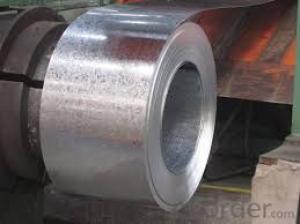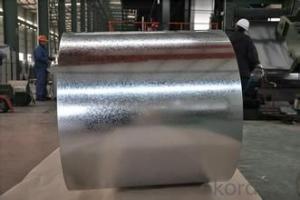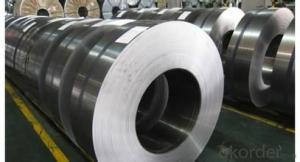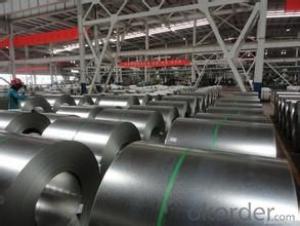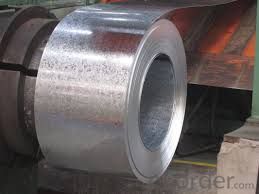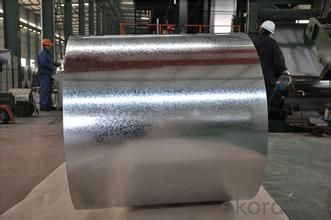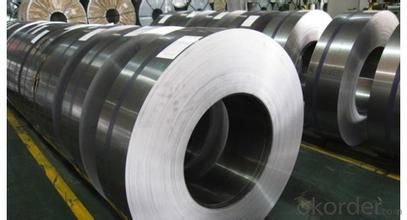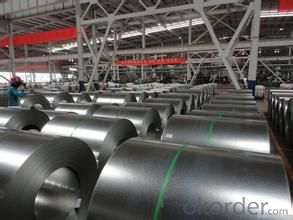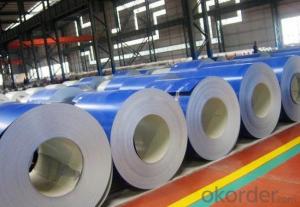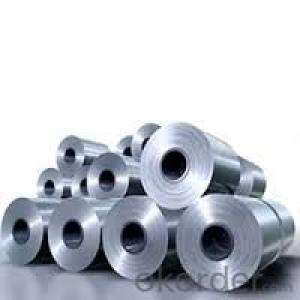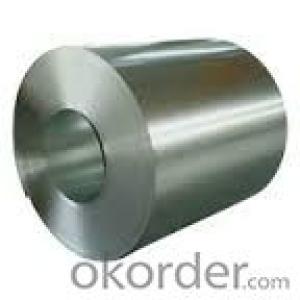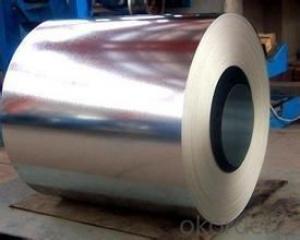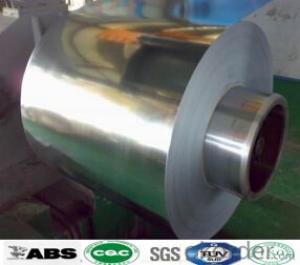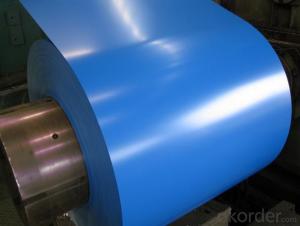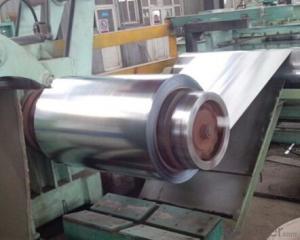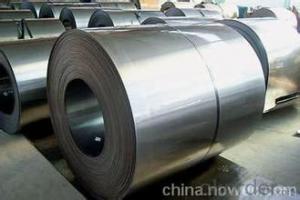hot-dip galvanized/ aluzinc steel SGCC DX51D
- Loading Port:
- China main port
- Payment Terms:
- TT OR LC
- Min Order Qty:
- 30 m.t.
- Supply Capability:
- 5000000 m.t./month
OKorder Service Pledge
OKorder Financial Service
You Might Also Like
Description:
Hot-dip galvanized steel coils are available with a pure zinc coating through the hot-dip galvanizing process. It offers the economy, strength and formability of steel combined with the corrosion resistance of zinc. The hot-dip process is the process by which steel gets coated in layers of zinc to protect against rust. It is especially useful for countless outdoor and industrial applications.
Specification:
1.Mateials:SGCC,DX51D / DX52D /S250,280GD
2.Size:width:600-1250mm(900mm,1215mm,1250mm,1000mm the most common)
thickness:0.15-2.0mm
length:1000-6000mm,as your require
3.Zinc coating :60-180g( as required)
4.Coil id:508mm
5.Coil weight: 3-5MT(as required)
6. Surface:regular/mini/zero spangle, chromated, skin pass, dry etc.
Applications:
Galvalume Coil widely used for roofing products, It is also the ideal base material for Prepainted Steel Coil.
1. roofing
2. gutters
3. unexposed automotive parts
4. appliances
5. furniture
6. outdoor cabinetry
Images:
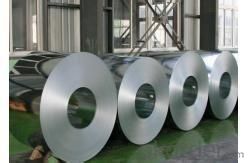
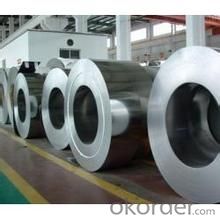
- Q: Procedures for sharpening a knife with the stone and the steel?
- If you are lucky and have a whet stone block you need some patience water or light machine oil. Take your time and work in circular motion at a slight angle as to put an edge where you want it. I tend to think of it like polishing and work the length of the blade. If you work with a steel you are suppose to pull the blade across the steel at an angle. I have forgotten the angle but if you attempt this you soon find that you can associate a certain feel of the way the blade crosses the steel and know when you have it right and check the blade periodically until you have it the way you want it. There are some other sharpeners out there where you just draw the blade thru a device and they work as well. I was taught the old ways with the stone and the steel and don't know the actual prescribed angles but can tell you that you will be able to eye ball the angle and you don't have to use heavy pressure. These processes won't work on a serrated blade!
- Q: How are steel coils used in the production of industrial storage tanks?
- Industrial storage tanks commonly utilize steel coils due to their superior strength and durability. These coils are typically crafted from high-quality steel that is rolled into a coil shape, enabling convenient transportation and handling. During the production process, steel coils are initially uncoiled and flattened to create steel sheets. These sheets are then cut and formed into the desired shape and size for the storage tank. The steel sheets are joined together through welding or bolting to construct the tank's body, which is designed to endure high pressure and heavy loads. The utilization of steel coils in the production of industrial storage tanks offers numerous benefits. Firstly, the strength and durability of steel ensure that the tanks can withstand harsh conditions and resist corrosion. This is particularly vital for storage tanks containing corrosive substances or exposed to severe environments. Moreover, the flexibility of steel coils permits customization of the tank's design and size. This is especially advantageous in industries with varying storage requirements, like the oil and gas sector. Steel coils can be effortlessly cut and molded into diverse shapes and sizes, facilitating the creation of storage tanks tailored to specific storage needs. Furthermore, steel coils are easily transportable and storable, making them a cost-effective choice for industrial storage tank production. The coils can be efficiently transported to the manufacturing facility, reducing transportation costs and logistical complexities. In conclusion, steel coils play a crucial role in the production of industrial storage tanks by providing strength, durability, and customization options. Their usage guarantees the safe storage and protection of various substances, rendering them indispensable in a wide range of industries.
- Q: What are the safety regulations for handling steel coils?
- The safety regulations for handling steel coils include wearing appropriate personal protective equipment, such as gloves and steel-toed boots, using proper lifting techniques and equipment, ensuring a clear and organized work area, and following guidelines for stacking and securing coils to prevent accidents and injuries. Regular inspections and maintenance of equipment and storage areas are also crucial for ensuring safe handling of steel coils.
- Q: How are steel coils inspected for surface finish variations?
- Steel coils are inspected for surface finish variations using visual inspection techniques, such as the use of specialized lighting and magnification to identify any imperfections or inconsistencies on the surface. Additionally, non-destructive testing methods, such as laser scanning or magnetic particle inspection, may be employed to detect any surface defects that are not visible to the naked eye.
- Q: How are steel coils used in the manufacturing of storage cabinets?
- Steel coils are used in the manufacturing of storage cabinets as they provide the raw material for forming the cabinet's metal components. Coils are unrolled, cut, and shaped into the necessary panels, shelves, and doors, which are then assembled to create the cabinets. The strength and durability of steel make it an ideal material for these cabinets, ensuring they can safely store and organize various items.
- Q: How are steel coils used in the production of shipping vessels?
- Steel coils are used in the production of shipping vessels as they are shaped and formed into various components such as hulls, decks, and bulkheads. They provide strength, durability, and flexibility to the structure, ensuring the vessel can withstand harsh marine conditions and carry heavy loads.
- Q: What is the role of steel coils in the manufacturing of bridges?
- Steel coils play a crucial role in the manufacturing of bridges as they are used as the primary material for constructing the structural components of the bridge, such as beams, columns, and girders. These coils are manufactured by rolling steel into flat strips, which are then wound into large coils. The high strength and durability of steel make it an ideal choice for bridge construction, as it can withstand heavy loads, extreme weather conditions, and provide long-lasting support. The coils are processed further to fabricate the required bridge components, ensuring the structural integrity and stability of the bridge.
- Q: How are steel coils used in the manufacturing of machinery?
- Steel coils are used in the manufacturing of machinery as they provide a reliable and durable material for various components and structures. These coils are often shaped, cut, and formed into desired parts such as gears, shafts, frames, and supports. The high strength and versatility of steel coils allow them to withstand heavy loads and harsh conditions, ensuring the machinery's efficiency and longevity.
- Q: where can you find carbon steel in los angeles?? what store?? preferabbly 01 carbon steel
- Try the internet. I'm sure the steel suppliers there know about this
- Q: I have been wanting a new pair of hiking boots, but haven't had the money. I just got a job that requires me to have steel toed boots. The job is only for a few weeks, but I may be required to wear them on other jobs in the future. Regardless of which style I get, I will most likely be buying Red Wing boots. On their website, I see they have steel toed hiking boots. What is the purpose of a steel toed hiking boot? Why would a hiker need to have steel toed boots? Wouldn't that just be more weight? I see that some of their hiking boots have aluminum toes, claiming to be 33% lighter than steel with the same protection. Would these boots be good potential hiking boots as well as suitable for construction or should I just focus on work boots and buy myself some hiking boots at a later date?
- This Site Might Help You. RE: Are steel toed hiking boots worth buying? I have been wanting a new pair of hiking boots, but haven't had the money. I just got a job that requires me to have steel toed boots. The job is only for a few weeks, but I may be required to wear them on other jobs in the future. Regardless of which style I get, I will most likely be...
Send your message to us
hot-dip galvanized/ aluzinc steel SGCC DX51D
- Loading Port:
- China main port
- Payment Terms:
- TT OR LC
- Min Order Qty:
- 30 m.t.
- Supply Capability:
- 5000000 m.t./month
OKorder Service Pledge
OKorder Financial Service
Similar products
Hot products
Hot Searches
Related keywords
